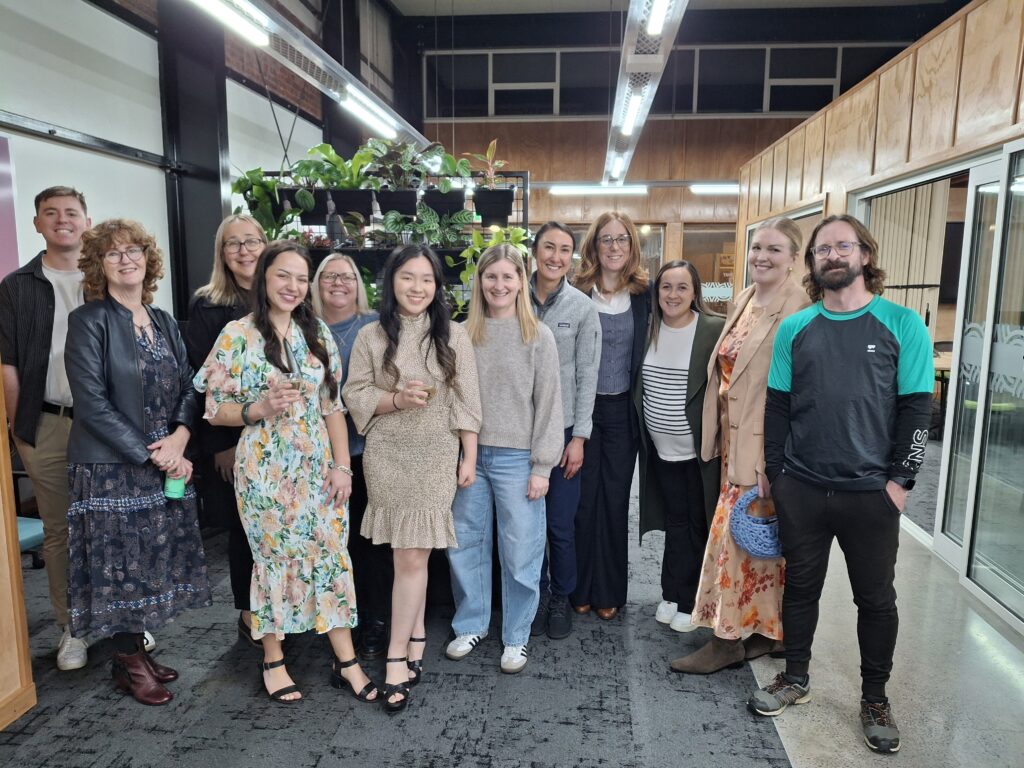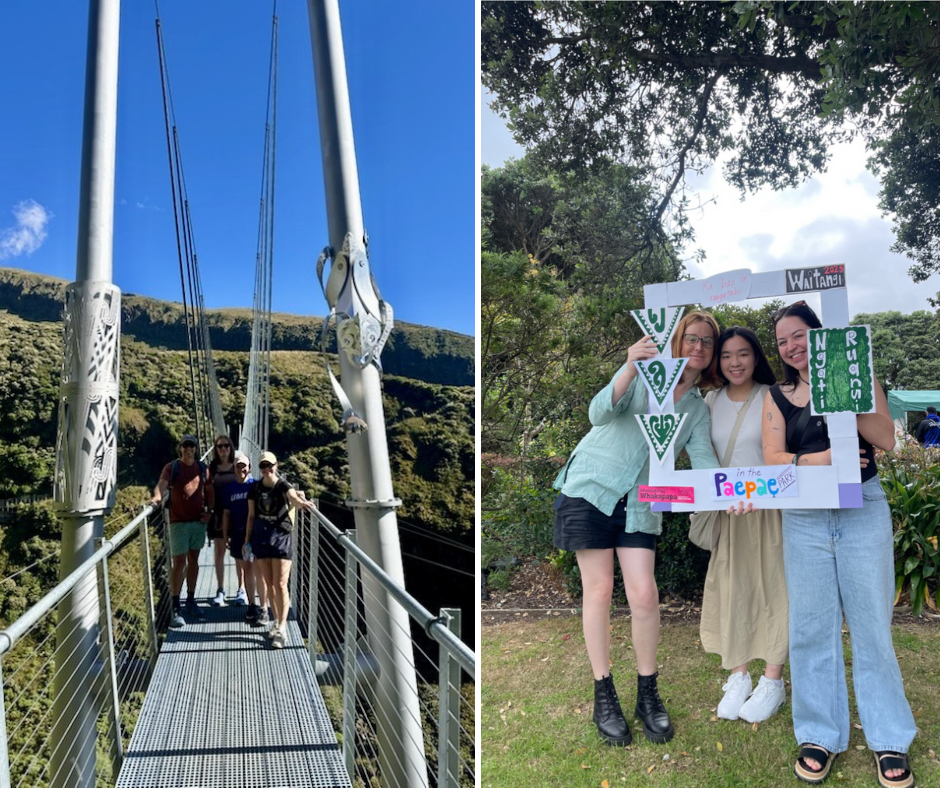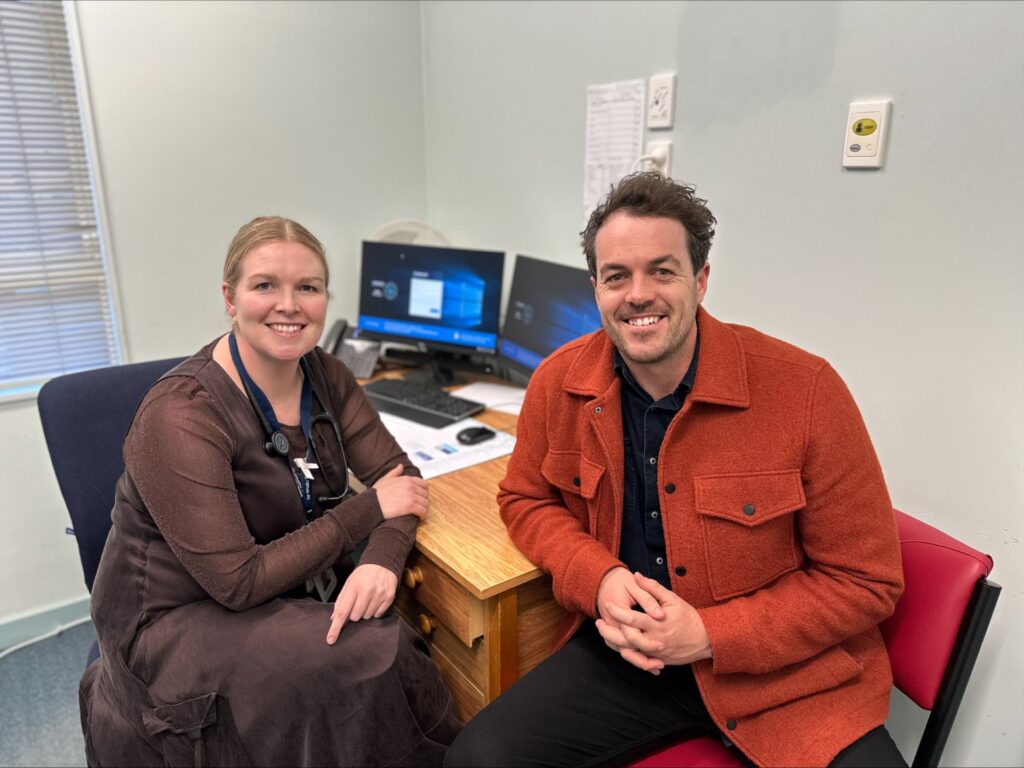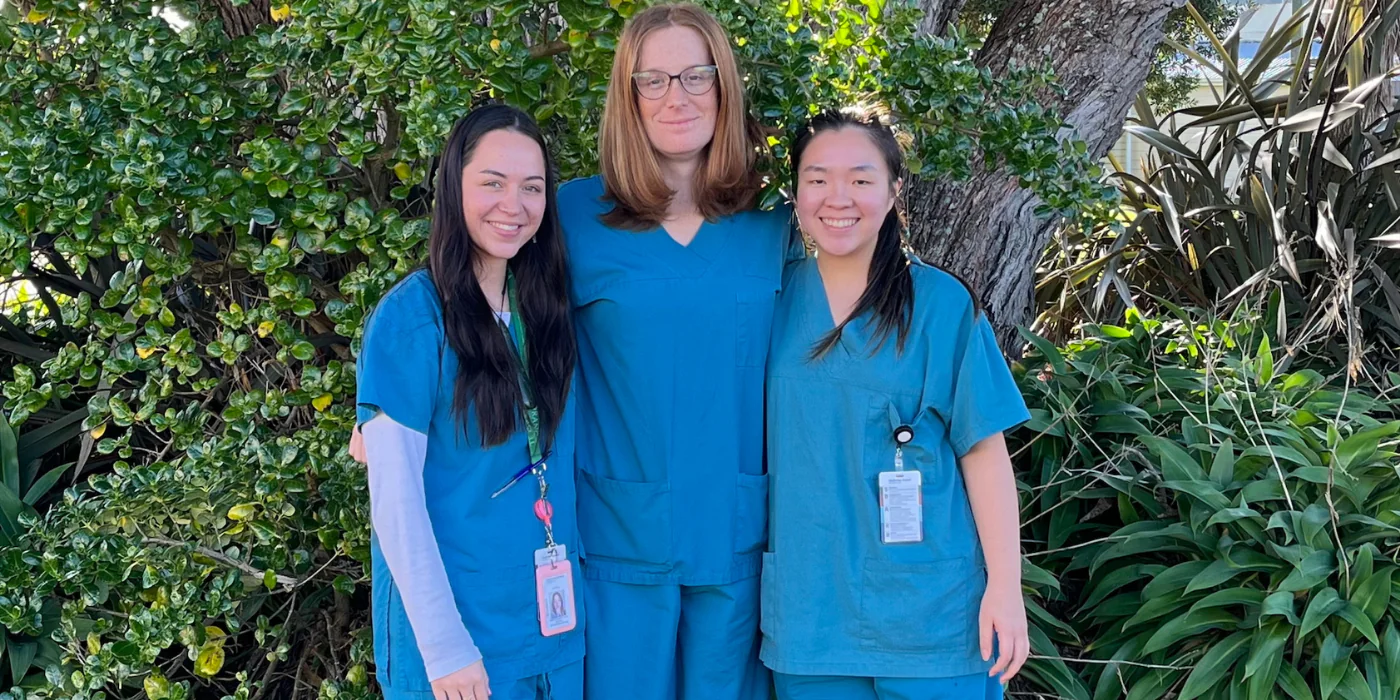Seven Months On: Medical Students Embrace Life and Learning in South Taranaki
25 Aug 2025In February, three fifth-year medical students, Angeline Hii, Lockey McGrath, and Sophia Zohrab, arrived in Hāwera to begin their year-long journey with the Rural Medical Immersion Programme (RMIP). The programme, designed to strengthen healthcare in rural New Zealand, places students in regional hospitals to provide immersive, hands-on training.
Hāwera Hospital is one of four rural training sites in the North Island selected for the Rural Medical Immersion Programme (RMIP). The programme is a collaboration between the University of Auckland and Health New Zealand | Te Whatu Ora.
Local doctors, Taranaki Foundation, the Hāwera community, and key funding partner Toi Foundation have been strong supporters of this initiative. They all recognise the difference hands-on rural training can make. This experience is vital for growing the next generation of healthcare professionals for our communities.
Seven months in, the three medical students have become part of the fabric of the South Taranaki community, both in and out of the hospital.
Dr. Hannah Lawn, Rural Hospital Medicine Consultant Health NZ and RMIP academic coordinator for the programme, says the experience has exceeded all expectations.
“They actively seek out learning opportunities, often seeing patients independently before the doctor, and that’s significantly built their confidence, clinical reasoning, and communication skills.”
“What’s been especially heartening is the enthusiasm not just from doctors, but also from nurses, midwives, community mental health teams, St John, Hospice and general practice staff. The collective support these students receive has far exceeded my expectations. It has been a true team effort.”
“The wider Hawera Hospital community has also gone above and beyond. It’s reassuring to see the students enjoying their time here, which allows me to focus on their academic development, knowing they are well supported both professionally and personally.”

Angeline, Lockey, Sophia, and their wider team from Hāwera Hospital
Building Skills, Making Connections
Angeline, Lockey, and Sophia each reflected on the impact of the programme so far and how the South Taranaki community has shaped their journey.
“I’m truly enjoying my time at Hāwera Hospital,” said Angeline. “Seeing patients independently has been incredibly valuable for building clinical and communication skills. Plus, I love the charm of living in a small town, everything’s so close by! Weekly pub quizzes with the hospital team have become a real highlight.”
For Sophia, the support from both staff and patients has stood out. “Everyone is so welcoming, including patients. Especially in general practice, they’re invested in our learning. I’ve got my regular pub quiz and squash games, and last week we visited the kindergarten in Ōpunake. And getting to spend more time with my dad, who’s a local, has been really special.”
Lockey shared similar thoughts, sharing how the experience has reshaped her view of rural healthcare. “Rural practice has this incredible blend of variety, responsibility, and teamwork. You’re constantly problem-solving due to fewer resources, but the care delivered is still exceptional. It’s made me realise that rural medicine is not just rewarding, it’s sustainable. And being near my whānau has added even more meaning to this year.”
Memorable Moments
While each student has had standout experiences, Angeline recalls two particularly meaningful ones for her.
“I had the chance to suture a finger in ED for the first time, with supervision. The next day, a nurse asked if I’d done it and I panicked a little, thinking something had gone wrong. But then she told me it was her mother-in-law and that I’d done a great job. I’ll never forget that moment.”
Another highlight was an adventure with a local doctor who took the medical students sliding into the ice-cold Wilkies Pools, followed by a visit to the scenic Manganui Gorge Bridge. “It was an unforgettable day of adventure and connection with South Taranaki,” Angeline says.
For Lockey, it was the warm welcome that stood out. “When we arrived, locals stocked our house with essentials and shared all the tips on where to go and what to see. That generosity made us feel like we belonged from day one.”

Reflections on Rural Healthcare
For all three students, their time in Hāwera as part of the RMIP has deepened their understanding of the realities and challenges of rural medicine.
“There’s a deep sense of trust here,” said Angeline. “You often treat people connected to others you know, which makes delivering compassionate, thoughtful care even more important. But there are also real challenges, especially with access to specialist care. That’s been eye-opening.”
Sophia agreed sharing “Everyone knows everyone, I can sit down with anyone at the hospital cafeteria and share a meal, that wouldn’t happen in Auckland, it is a wonderful place to work. Yet there is a lack of specialist services which is very frustrating when you have people with treatable diseases who aren’t being seen.”
As these future doctors complete their RMIP placement in South Taranaki, it’s clear that the experience is not only shaping their clinical skills but also transforming their understanding of medicine, community, and the meaning of care.
“We feel supported, included, and inspired,” said Lockey. “This isn’t just a placement, it’s a life experience we’ll carry into our future careers.”
Josh Hickford, CE of Taranaki Foundation, concluded “It is incredible to see the South Taranaki community embrace these doctors with such warmth. Their contribution is strengthening local healthcare and helping to create a lasting legacy; one grounded in generosity, connection, and community. Taranaki Foundation is all about inspiring giving, and in this instance, there is a clear sense of reciprocal generosity between the doctors and the community that has so openly welcomed them.”

Dr. Hannah Lawn, Rural Hospital Medicine Consultant at Health NZ and RMIP Academic Coordinator, and Josh Hickford, CE of Taranaki Foundation



